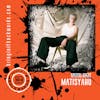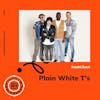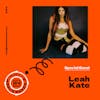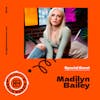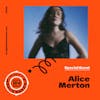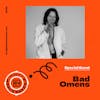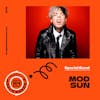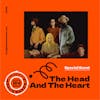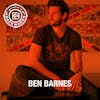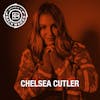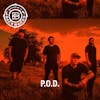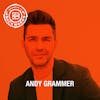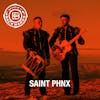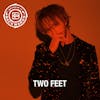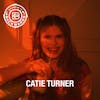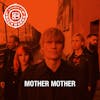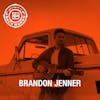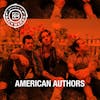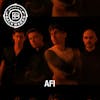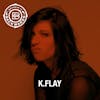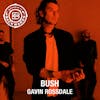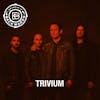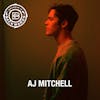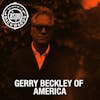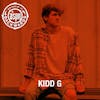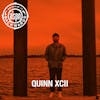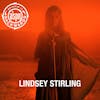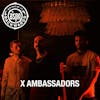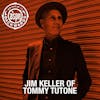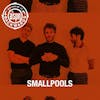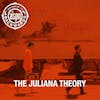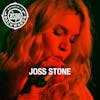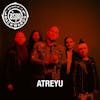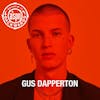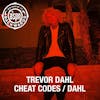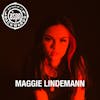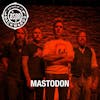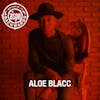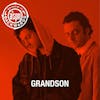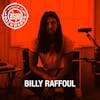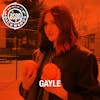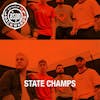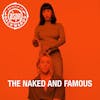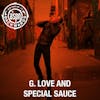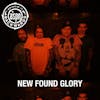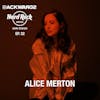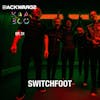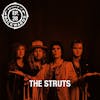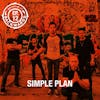Interview with Sammy Rae & The Friends
We had the pleasure of interviewing Sammy Rae & The Friends over Zoom video.
For as much as Sammy Rae & The Friends may be a band, this collective of, dreamers, and artists consider itself a family first.
Fronted by singer and songwriter Sammy...
We had the pleasure of interviewing Sammy Rae & The Friends over Zoom video.
For as much as Sammy Rae & The Friends may be a band, this collective of, dreamers, and artists consider itself a family first.
Fronted by singer and songwriter Sammy Rae, the group flourishes in any spotlight with a combination of all-for-one and one-for-all camaraderie, palpable chemistry, deft virtuosity, and vocal fireworks. Their sound is a mélange of Sammy’s influences, rooted in classic rock, folk, and funk and sprinkled with soul and jazz. Complete with a rhythm section, horn section, keyboards, and two backup singers, Sammy Rae & The Friends have or will deliver their high-energy, spirited and unrestrained shows to sold-out audiences in the Northeast and beyond, including New York City’s Brooklyn Steel, Boston’s The Royal, LA the Teregram, Burlington’s Higher Ground, and Chicago’s Lincoln Hall.
Sammy Rae & The Friends built this kind of trust one show at a time. As the story goes, our fearless leader grew up in Derby, CT, learned piano and penned her first crop of songs at just 12-years-old. Under the spell of everyone from Queen to Ella Fitzgerald to Bruce Springsteen, she honed her voice. She cut her teeth in local venues by high school, even releasing a series of independent solo records before college. New York eventually called to the songstress as she enrolled in Manhattan College in 2013. Toughing it out tooth and nail in The Big Apple, she left college in 2014 to pursue music full-time and threw down at countless gigs while continuing to write and record at a prolific pace. At the same time, crowds doubled with every rapturous performance as they built an inclusive safe space for fans everywhere.
Meanwhile, they’ve racked up over 20 million streams on Spotify and have played festivals along with The Revivalists, Lake Street Dive, ST Paul and The Broken Bones, and more.
The unit only grew stronger.
The band advocates for the importance of their community. Avid music fans themselves, they pride themselves on this original grass-roots, word-of-mouth growth. The Friends is their community of followers, artists, and creatives, who help in the creation of their songs and sustenance of the project—their mixing engineer, band photographer, graphic designer, budget manager, and everyone who hangs around the shows supporting the vision. Shows are safe spaces to feel overwhelmed with love and acceptance. “Friends” in the audience are encouraged to dress how they like, dance how they like, join the party and form person-to-person Friendships. Sammy Rae & The Friends shows are like a house party, a church of rock and roll, and shot in the arm of affirmation of individuality.
In the end, it’s not a party without Friends.
Sammy Rae & The Friends’ new single “Follow Me Like the Moon” is out now!
We want to hear from you! Please email Tera@BringinitBackwards.com.
www.BringinitBackwards.com
#podcast #interview #bringinbackpod #SammyRae #SammyRaeAndTheFriends #FollowMeLikeTheMoon #NewMusic #zoom
Listen & Subscribe to BiB
https://www.bringinitbackwards.com/follow/
Follow our podcast on Instagram and Twitter!
https://www.facebook.com/groups/bringinbackpod
We'd love to see you join our BiB Facebook Group.
Hello! It is Adam. Welcome back to bringing it backwards. A podcast where both legendary and rising artists tell their own personal stories of how they achieved stardom. On this episode, we had a chance to chat with Sammy Ray of Sammy Ray and the friends over zoom video. Sammy was born and raised in Connecticut, and she talks about how she got into music. Sammy took piano lessons at a very early age and around 12 years old, they were able to take songwriting lessons. Sammy had a vocal teacher music teacher that also taught songwriting was a songwriter. So Sammy was able to learn songwriting at very early ages. 3 (2m 9s): Well, after high school, Sammy moved to New York to attend. College was only in college for a year in a semester. Same. He has a great story about leaving college, making that decision to leave college recording the first P the good life, the major success of the song. Kick it to me. We also learn how the band was able to continue to grow and grow on each and every release we hear about where Sammy was when the pandemic hit putting the record out, let's throw a party all about the two cover songs that Sammy Ray and the friends have released and all about the most recent release called follow me like the moon. You can watch our interview with Sammy on her Facebook page and YouTube channel at bringing it backwards. 3 (2m 53s): It would be awesome if you subscribe to our channel like us on Facebook and follow us on Instagram and tick talk at bringing back pod. And if you're listening to this on Spotify, apple music, Google podcasts, it'd be amazing if you follow us there as well, and hook us up with a five-star review. 4 (3m 11s): We'd appreciate your support. If you follow and subscribe to our podcasts, wherever you listen to podcasts, 3 (3m 16s): We're bringing it backwards with Sammy Ray of Sammy Ray and the friends by Sammy. 5 (3m 24s): Hello there. 3 (3m 26s): How are you? 5 (3m 28s): I'm good. How you doing? 3 (3m 30s): I'm doing well. I appreciate you doing this. 5 (3m 32s): Of course. Glad to be here. 3 (3m 34s): Cool. Cool. My name is Adam, and this is about you and your journey and music. And we'll talk about the new record. 5 (3m 42s): Cool. Let's do it. 3 (3m 44s): Cool. Cool. All right. First off, where were you born and raised? 5 (3m 48s): I was born and raised in the small town of Derby, Connecticut, just outside of new Haven, Connecticut. 3 (3m 55s): Okay. What was it like growing up there? You say small townhouse, smaller. We talking 5 (3m 59s): Three square miles. Very small. 3 (4m 3s): Very 5 (4m 3s): Little. Yeah. Yeah. It was a stream of smile. Very little V. It was wonderful. It's a small town in Connecticut. That's very like wooded. My backyard was a state park. So I spent a lot of time in the woods running around in the dirt, running around in water, looking for bugs, looking for frogs, that kind of thing. So, as you can imagine, it was a culture shock. When I left that town for the first time at 19 to move to the Bronx, 3 (4m 36s): She went from there to New York. 5 (4m 38s): Yeah. I went from there to New York. I went from there to when I was 18, I moved to the Bronx to go to school. I thought I was going to be a teacher and that took about a semester enough. And then I ultimately left to start pursuing the band thing. And at that point I was living in Brooklyn and working on music by the time I was 19. Wow. 3 (4m 58s): Wow. Okay. What was the first instrument you learned how to play? 5 (5m 4s): I was playing piano like keys from the time I was like four to eight. So when I was a baby baby, and I just kinda wanted to learn by ear. So I wasn't really big on the theory. I didn't pay a lot of attention. And then I left that I've stopped when I was like, you know, eight or nine. And then when I was about 12 or 13, I went back and started taking songwriting lessons with somebody who was more geared towards teaching me how to write songs. So I was learning about chord structure and song, structure, and lyrics and that sort of thing. So the first instrument I learned was keys. And then I, you know, didn't really stick very much lessons and then started applying that to songwriting when I was about 12 3 (5m 44s): That's cool. They had a teacher that taught how to song write at that early of an age, 5 (5m 52s): My parents were the best. They, they were like, I don't know what to do with this kid. I'm not from a very like creative. And they found someone who was, I think she was giving singing lessons and she was also a songwriter. And so we were able to kind of tail tailor my lessons around songwriting. 3 (6m 7s): That's cool. Or were you always like interested in, or were you always writing lyrics or like poetry or anything like that? Or was that something that had to come later with having this course or having this woman teach you? 5 (6m 18s): I, I had a lot of, I was always a words kind of kid. So it was always writing poems and little stories and stuff. And it was around that age that I started to, my dad started introducing me to like classic rock, so Springsteen and the rolling stones and, and Fleetwood Mac and all that stuff. And that's when I started to understand lyrics, like words and music come together and that's how you make a song. And that was really interesting to me. So around 12 or 13 is when I started paying attention to that, to writing songs. And that became a big interest for me. Okay. 3 (6m 48s): At cool it with this small town, how many kids were like in your high school or elementary school, middle school, or is that all like the same group of kids that kind of went up through everything together? 5 (6m 58s): It was, I did the same elementary and middle school situation. It was pretty much the same kids. There was like, I don't know, maybe 30 kids in my class. And then I ultimately went to my high school was just like, not the one in my town. So I ended up going to a private high school outside of town. I went to an all-girls Catholic for high school, which was a hundred, a hundred girls in my graduating class. And that was a whole thing, you know, but also going to go into, go into that school, there was a lot more available to, I mean, when it came to the arts of drama and, you know, acapella group inquires and stuff like that. 5 (7m 38s): So I had a brilliant music teacher all four years who really saw this sort of talent in me and fostered that and encouraged me to go into songwriting if I wanted to. So yeah, while it was what it was, it was a hugely transformative experience for me and really kind of helped me for the first time. You know, really believe that I could, you, you can be a musician, that's like a viable career path. If you want. I didn't read, I didn't really click with me until maybe the end of high school. Yeah. 3 (8m 5s): And having somebody that's like advocating for, you know, kind of validating what you, you thought you wanted to do. That's amazing. Especially like a teacher or somebody in that position. 5 (8m 16s): Yeah. Oh, he's the best. I talk about him all the time. All the same requests. He's the best. 3 (8m 20s): You still keep into contact with them. 5 (8m 23s): I do. He came to see me played an outdoor show in Connecticut a couple months ago, just like a surf thing. And he came, he was just like, I played the whole show for him. There were hundreds of people there and I was just like playing to him and, and it was, it was amazing. It was like, it brought tears to my eyes. It was crazy. Yeah. 3 (8m 39s): Yeah. He was probably so stoked to see you, you know, the success that you've had with this and kind of being a part of it all. You know what I mean? 5 (8m 48s): Yeah. He was, he was so honored and super Florida. And I talk about him all the time. He knows that. I talk about a moment. 3 (8m 55s): So you were writing songs while attending high school, and then were you playing out at all? Or 5 (9m 2s): I was, I was always writing songs. There was this little space. It was called the space in Hamden, Connecticut, which was right down the street from my high school. And it was the only place where you could like independent artists who were young, could play sets. Like they didn't mind if you were under 18. And I played in my first show when I was 15 and it was me and a piano and I was just playing my originals. And at that time it was very like pop oriented, kind of upbeat theatrical stuff. And I did that, whatever I could through high school. And then when I got to the city, I had gotten a couple of gigs singing, like jazz standards, like dinner sets and, and private events and stuff like that. 5 (9m 43s): And then ultimately I started working on what became the good light VP, my first release and original music and putting a band together and, and started playing around New York city. 3 (9m 54s): Okay. So you went to college then in New York for it to be a teacher. That's what you originally thought you wanted to do? 5 (9m 60s): Yeah, I went for a full-time semester and then half of a part-time semester. And at that point it was like, I just said, I, you know, I also they're on board now. Obviously God blessed them, but I, my parents were, I was really the first one with an opportunity to like go to college like that. And so there was just this, like, you have to get a degree and if you want to make music like cool, but you have to get your degree. So it was very hard for me, you know, that, that when I, the year I was in school for most of that year, it was tough because finally I was out of that really small town. And I was like, surrounded by people like me. Let's run it by creatives. I was surrounded by musical opportunities. And so I just felt kind of flooded by that. 5 (10m 40s): And opportunities started affording themselves to me. And I was ultimately like, you know, I was trying to make it work and make a record at a studio that was like on the lower east side while I was living up at the top of the Bronx. And I was commuting for two hours to go down there and was missing classes anyway. And my life downtown made me so happy. And I knew I was building something I really wanted to pursue with my life. And then at school was school. So, so yeah, that was a pretty hard transition. And I ultimately just decided to leave and go see what we could do. 0 (11m 12s): Here's to the great American settlers. The millions of you has settled for unsatisfying jobs because they pay the bills. Of course, there is something else you could do. If you got something to say, start a podcast with speaker, from iHeart and unleash your creative freedom, maybe even earn enough money to one day. Tell your old boss a I'm no settler. I'm an Explorer. spreaker.com, S P R E K E R a salon over today. 2 (11m 43s): Oh, we could, we could fly. This is your summer. That means six flags in the taste of an ice cold Coca-Cola we're talking thrilling coasters, delicious burgers, real moments. And this Koch is summer refreshment when you need it most. So you can hop on another ride or race down a slide at the waterpark, six flags, and Coca-Cola come make it yours. Visit six flags.com/coke to save up to $20 on passes. Plus daily tickets starting at 34 99 6 (12m 13s): At Sandy spring bank, we care about people not transactions. So we concentrate on creating personalized solutions to start or grow a business that provides for your family to purchase a home that will house the memories you make there to save. So you can enjoy today and then pass on your legacy to future generations. We believe real banking is a conversation let's talk visit Sandy spring bank.com/real mortgage home equity and other credit products offered by Sandy spring bank. 3 (12m 43s): Yeah. So you, do you have, like, was there a moment, like just recording that record? Like, was there like a success moment or something that happened? That kinda was like, I, aside from the time and the time going down and back and forth, and just kind of knowing that you wanted to pursue music, was there something that happened that you like really validated the fact that you needed to continue doing what you were doing? 5 (13m 7s): Yeah. There were a couple moments. I think I started to go see live music when I was downtown to the clubs I could get into. And I realized this is a dumb way to say it, but like I had what it took, you know what I mean? Like I was making music and I was watching other people that like, you know, if they can get on that stage and they can put on this show that my songs are as good, if not better, I'm as good a singer and a musician, if not better. And, and I realized, you know, I wasn't just like one of the most creatively gifted kids in my high school, like I'm gifted and I can do this on the grand scale and in New York. And I was just so tired by the time I was living off campus, I was like babysitting and working at a restaurant and commuting two hours and then I would have to go to class and it was just bananas. 5 (13m 55s): And I remember being in a, in a Western civilization class one day, this was a very definitive moment. And I was just kind of like present in person, but my books were away. I just, I had to be there. I had to show up to class for whatever reason. And my teacher, I clearly it was act out. And my professor was like, you know, call me by my last name and was like, you know, why are you so unpleasant today? When I was just like, I'm tired and I've been working on a lot of things off campus. And he was like, do you want to be in this classroom right now? Do you understand how that applies to your future? And I was like, no, I don't want to be here. And he was like, do you want to be on this campus? Do you want to be studying? And I was like, no, I don't. 5 (14m 36s): And he was like, then why are you wasting your time? Go drop out. And he said that in front of my whole class. And I was like, you're right. I guess. And, and I, and I think it was kind of, I had having, I had an, a bit of an authority problem at that time period where I was like, you know, sir, no, I don't want to be here. And he was like, fine. Well then there's no reason for you to be here. Why don't you withdraw? And my whole class is kind of watching and I was like, you know what? I just might, and he was like, well then there's your decision, no need to stay in this classroom or bag and leave. And he kind of like kicked me out. And then I called my dad and I was like, I need to leave school. And I need you to tell mom that I'm doing that. 3 (15m 15s): And 5 (15m 17s): Yeah. And he, he understood. He was like, you know, you gotta give this the fair try if you really want to do this thing. And my mom ended up coming around, but I withdrew and I moved to Brooklyn and my dad never looked back everything that I was hoping for. It just kind of started to show up. I made the friends I'd been wanting to make, since I was a teenager, you know, I had live music every night I could go see, and my crew and my craft was I was building my craft every day, just by being around. It just inspired differently in a town like this, you know, 3 (15m 48s): That's so awesome that you were able to, you know, and just be like, you know what? The have that teacher kind of give you the nudge almost like, oh, if you don't want to be here, then leave. You're like, well, okay, I'll see you later. 5 (15m 58s): I don't know what he was expecting. But he was like, he was like, you know, you're being very disrespectful by not being present. Like, what do you want to be here? And I was like, no. And then he's like, why are you here? 3 (16m 9s): So it's just funny. Cause it's like, how are you disrespecting anyone else in the class? If you aren't being present? Isn't it just like, you're just not, 5 (16m 15s): I tell him to call. I should call him too. I should, by the way. Thank you. 3 (16m 20s): Yeah, exactly. Right. I'd like to thank you for telling me I should leave this class. 5 (16m 25s): Thank you, sir. Thank you. 3 (16m 26s): And I would like to pull all the students that you've had over the course of the years and see how many of them actually utilize anything. You taught them in their 5 (16m 34s): Daily 3 (16m 34s): Life. 5 (16m 37s): I keep saying, I keep seeing this tweet. That's just like something to the effect of like, ah, another beautiful day of not needing to use the Pythagorean theorem. 3 (16m 48s): It's so true. 5 (16m 49s): You know? 3 (16m 50s): Yeah. It's funny. I mean, I went through college and it was like, why am I taking a half these classes? And why am I paying for these classes? Like, what is the point of this? 5 (16m 58s): Listen, man, I don't know. All I can tell you is that the mitochondria is the powerhouse itself. That's all I have for you. 3 (17m 5s): That's all. 5 (17m 7s): Yeah, that's all I got. 3 (17m 8s): Oh, that's funny. So you are working on that first DP when you were still in co in school? 5 (17m 14s): Yes. A little bit. I was writing those songs. I was working on another album that I ultimately, you know, didn't, didn't see through, but when I left school, I kind of had a chance to focus on the originally P my material, those five songs on the good life. Full-time and, and it was a kind of busy and relatively kind of lonely first couple of months where I didn't know anybody. Like I don't play trumpet, but I hear the trumpet part. Right. So I was just going to as many open mics and jam sessions as I could just try to meet people and taking people to coffee and eventually pulled this band together and went in and recorded the good life. 3 (17m 55s): Well, yeah, that you have to be pretty outgoing to do that for me, I'm just not an extrovert at all. So like going, that'd be hard for me to go to people and be like, Hey, like you're, you're really good at trumpet. Like, do you want to grab coffee and talk about playing on my record? Like, was that hard to do? 5 (18m 12s): I think, I don't know. I, I that's the culture sort of, of this sort of industry is like, I, you know, if I go to a club and I see a basis playing with some other artists, and then I go back two days later and he's playing with somebody else that in my head is like, okay, it's not just, I think he's killing, like people in the industry think he's killing. He's in a lot of different people's bands. He's clearly versatile needs to be in my project. And yeah, I get that very often. That's, it's, it's, that's kind of a, that, that, that's kind of something you do in industry. Somebody who say like, Hey, you're cool. Let's go get coffee. They're like, is this a date? But if you're like, you know, PR moving through the direction of, I loved your set, you're very talented. 5 (18m 57s): I'm trying to put a band together. Why don't we go to coffee? And they know what we're going to talk about. And then it's either, thanks. It was nice to meet you, or this was great. Why don't you come to a rehearsal? But I was learning all that, like as a, as it was like, I didn't know how to be a band leader. I didn't know how to do any of that stuff. So I love my first band, that first batch of guys, they were not, you know, we, they were the guitars. I knew the bass. I knew the drummer. I knew not my favorite guys, but, and I didn't stick around for very long once. I started to find, you know, more fitting people for the project, but I'm grateful for them because they trusted me. And I learned so much about band leading and leading rehearsal and producing records and being in the studio and putting on live shows and all that, you know what them by my side and, and, and they were all in, you know, they were in projects. 5 (19m 48s): So there were moments where they would be like, you can't do that. Nobody does that. Like, you have to do it this way, or what do you mean? You didn't email this person and let them know about backline or whatever. So they were there for that kind of crash course, period. And so on. I'm grateful for that. 3 (20m 2s): Is that where the friends comes from and the friends? Is that just because you have a different, a revolving door of people coming through and playing on your records? Or is that something I'm totally missing? 5 (20m 15s): No, no, no. You're very close. So I knew I always wanted to have a set of all the time band members. It's like, okay, You know, when, if like gringo sprained his wrist, they didn't call it different trauma or the Beatles just didn't appear. You know what I mean? Like I, I knew I always wanted that. I always wanted the same folks, different personalities that you could get to know and love the whole time. And I knew more than anything. I didn't want to be a solo person. I want it to be me. And the, some things I wanted to lead a band, a large band, and the name of the friends is kind of a play on words, because as I was going to these venues in New York, like Rockwood music hall and the Bowery electric and mercury lounge, all those different things, I would see these posters that were like in big, you know, who here's, who's going to be here Friday, Jane dill and friends, when you're a patient with a lowercase F and I would go to the set and like, Changeux was phenomenal, but so was the drummer. 5 (21m 16s): And the drummer only got one second at the end and someone's on drums and everybody would clap and I would leave these sets and be like that front person was killing, but that whole band, like, and friends with a lowercase F they were stupendous to me too. So I wanted to kind of flip that on its head and ma name, the band, the friends capital T capital F. So it's me and the friends. And they're both in the same size font. And you see the same people every single time. It was a moment of me being like, you know, anytime an artist gets on stage with a band that they pulled together for whatever, like that's, that's their band. And it might be different players the next time, but I wanted it to be same players every single time. 5 (21m 59s): And I wanted those players to be as big of a deal and as big of a part of the live show as I was. So it's kind of a play on words there. 3 (22m 7s): Okay. That's interesting. 5 (22m 8s): They're not just, they're not just like friends that Sammy Ray pulled up. They are the friends. 3 (22m 13s): Right, right. So it's pretty much the opposite of what I was thinking. I was thinking, oh, okay. Maybe Sammy Ray has different people coming in. So it's like, oh, these are my friends. And they're going to come each and every time different people. But it sounds like that's the total opposite reason of why you named it. The friends. 5 (22m 31s): Yeah, it is. It is, there was a time period where it was like that, where I was still trying to figure out who was going to play all the time. And I see a lot of these young bands, I'm thinking of one young band in particular who I really love. And I am very excited to see how they grow fronted by a young female as well. And you get so excited that you want to have everybody that you love on stage. So in the beginning, it's like, I would have pretty much the same basis guitar as drummer, every single show. But I would be like, I met this guy who was a trumpet player. I met this guy, who's a keys player. I met this person who does this and this person who does that. So for the first couple of shows, it was like, we would have a core rhythm section. And then everybody else was a rotating cast member. 5 (23m 11s): But very quickly I came to realize that just because I love all 12 of these people, I can't afford to have 12 people on stage and I, 3 (23m 21s): And expensive paying everybody out. And then you're like, okay, I made like 10 bucks. 5 (23m 26s): Yeah. And then we get to the place where we are able to tour and we have to leave the city and what am I going to rent? Like a bus. Like, I can't, you know, we gotta get, we gotta put everybody in the gear in two compacts or whatever's. And I see a lot of young bands doing this thing where it's like, they want to have everybody on stage. And then eventually they figure out how to pair down. And it's really hard because you're like severing these relationships. But in the beginning it was that it was the core group. And there were a lot of people rotating out every single show. And then eventually I was just like, what we have, we have, it's really great. And the product, the lineup that we've been with, the exception of miss Debbie Chung, who's just joined us on keys. 5 (24m 6s): About seven months ago. We've been the same lineup for, for several years. 8 (24m 11s): Oh, we can, we can. 2 (24m 12s): This is your summer. That means six flags in the taste of an ice cold Coca-Cola, we're talking thrilling coasters, delicious burgers, real moments together. And this Coke is summer refreshment when you need it most. So you can hop on another ride or race down a slide at the water park, six flags, and Coca-Cola come make it yours. Visit six flags.com/coke to save up to $20 on passes. Plus daily tickets starting at 34 99, 8 (24m 41s): Progressive snapshot can save you money based on how you drive and how much you drive. So the safer you drive, the more money you could save. Now, if you didn't hear that, because you were looking at your phone while driving, let me say it again. Seriously, put down your phone, put us so unsafe. If you didn't do stuff like use your phone while driving, you could save money with progressive snapshot, but saving or not just put it down. And if you did hear it the first time, because you weren't looking at your phone, nice work. You'd love snapshot from progressive because it rewards safe drivers, progressive casualty insurance company, and affiliates, Snapchat not available in California in North Carolina, where Molly agents 9 (25m 13s): This week at Macy's get set for back to school with 30% off the latest trends and classic jeans from Levi's, or use your coupon or Macy's card and get an extra 20% off dresses and already great deals like 20% off backpacks and handbags. Plus Macy's star rewards members earn on every purchase except gift card services and fees. See Macy's dot com slash star rewards savings off regular sale and clearance prices exclusions apply. 3 (25m 41s): Wow, that's incredible. And then with that first CP, I mean the first song you put out, kick it to me is massive online. I mean, was that something that caught quickly, like, tell me about how that, you know, that song really blew up for you. 5 (25m 56s): It was Spotify discover weekly. And I had, I had no idea how to do any of that. I mean, I literally went into this. I had to develop this relationship with a recording studio on the lower east side, because I had a friend who from years ago that had a job as a mixing engineer there. So I went in and I was kind of just like me and my boy, Josh. He was the mixing engineer here really want to make the CP of my original original material. Can you give us a break? Like, can you hook it up? And they were like, sure, we'll give you the buddy rate. And you can make the CP, let's see what happens. And if it doesn't nothing happens. And you know, we try to give it a fair try, and if it pops off and does great, then come back here and make all your music here and don't give up. 5 (26m 39s): And I made the CP with no plan on how to release. I didn't know how to make cover, or I didn't know how to get press. I had no following at all and I wasn't playing gigs yet. We put it out. And then I played a show where maybe a hundred people who had seen me at different open mics, maybe more like 50 people came and brought their friends or whatever. And it was an okay show and streams were whatever nobody was really streaming because I hadn't promoted it at all. And then maybe two months after it came out, I woke up and it had gone from under a thousand plays to 26,000 plays overnight, literally overnight and suddenly it was just climbing. 5 (27m 22s): And then right after that, a couple of days later, the same thing happened to the feeling which was another song on that EAP. So we, it was a combination of, you know, sticking with it and not giving up and, and really having great songs, but also kind of luck, you know? So suddenly we had to make more music. People wanted to see us in different cities. We had the tour and we had to start playing live. And we very quickly started to realize, as we were playing live, that people were really digging it. And every time the, the room would get bigger, it would sell out. It really is. We're like a New York band through and through, you know, and we were so grateful for our first friends in New York that brought us to where we were such that we could go to for outside of the city and bringing it to other people in other states. 5 (28m 10s): But it really did start kind of with this weird strike of luck. And then the growth was pretty much word of mouth. We're very, we're very grateful for that. 3 (28m 18s): That's so cool. I mean, well obviously you have to have the songs, right? So the one lands and then it could've just been, and now no one cares about the next three or four. 5 (28m 27s): Roger's a hundred percent. 3 (28m 29s): Yeah. And I've seen that so many times with, with bands or like, they'll have like with Tik TOK now they'll have a Tik TOK hit and then they'll try to regurgitate the exact thing they just tried to do. And either it doesn't land. And then it's like, okay, now I have one song that has 5 million streams and then everything else is under a thousand. And it's like, how do you, the fact that you were able to just continuously follow up? 5 (28m 52s): Yeah. It's that I, I could talk to you for three hours about Tik TOK and how it's changing the face of the music industry. It's really disheartening. Honestly, it's just so bizarre. I, I had a little video go viral on Tik TOK a couple of months ago. I, I invented this dancing queen challenge where essentially I sang this really complicated version of the melody to dancing queen. And I did it in one breath. And it was, this challenge was, can you sing this accurately? And can you do it in one breath? And it went like stupid, like just cry over the course of, I can look it up and tell you, but it was like something like 60 million times somebody had used that audio. 5 (29m 35s): The tag was on 7 million, 7 million people had used that hashtag it was bananas. And meanwhile, I'm releasing lot. I'm releasing material with my band. I'm touring the country. I'm selling out rooms all over the U S and I'm represented by a small record label based out of Canada. And I'm getting messages in my inbox that are like, I worked for Sony. I worked for Warner brothers. I work for Atlantic records. We want to offer you a record deal. Who can we contact? And I'm like, you don't like you were willing to offer me a major record contract because of 60 seconds of me singing a cover. 5 (30m 15s): You don't know anything about my original material. You don't know anything about my personality. It was really disheartening. It was kind of like, is this how people are getting discovered nowadays? And additionally, I think there's this strange thing with tech talk. I was very disappointed to see a lack of crossover and a translation of all of those views, all those videos to streams. Like there was a little bump. It didn't translate over to Instagram. It didn't really translate to ticket sales. It didn't really translate to streams. And every other comment was like, you're so good. You should be on Spotify. You're so good. You should play shows. And I'm like, I am out here. 5 (30m 53s): <inaudible>. 3 (30m 56s): Yeah. 5 (30m 58s): So it's frustrating because you know, there's this moment of clout. When you can tell your friends and your peers, like I went viral, but I won. And I see a lot of artists getting swept up in something like that. And they have this moment of, this is my lucky break. Atlantic hit me up because they want me to, you know, they want to give me a record deal because I went viral and it's like, how sustainable is that? You know? And it's, it's, it's a little bit predatory when you have a big name like that, you need to be careful with the way that you use it and throw it at people because I've also seen people jump into something like that. And then they, they went viral because they had a great idea. They can't generate an album's worth of material overnight, you know? 5 (31m 40s): So it can be, it can be tricky that sometimes like that. 3 (31m 43s): No, that's so interesting that you had that moment. And obviously, you know, the backstory to grinding and writing songs and even having a lot of success on that end before the, the viral moment happens. And then it's like, huh, you obviously didn't do any research on me to not to be like, Hey, this isn't so-and-so, we're going to offer you your deal. And you're like, yeah, I already have a deal. And I've been doing this. And I've been playing shows for a long time. 5 (32m 8s): And additionally, you're not interested in my artistry. You're interested in there's something about me that makes, made that video go viral. It's how I look. This is where my voice sounds or whatever. And you're interested in the marketability of now that everybody knows what the dancing queen girl's face looks like on. Ticktock when I make a record with Atlantic, people are going to remember that face and, and, and stream it. So you're interested in marketability. You're not actually interested in, in my talent or my art. Like I'm writing songs out. I'm not just singing Abba covers, you know, that's a whole different, that's a whole different, 3 (32m 44s): That's so wild. That's so wild. Because like I said, I've interviewed a lot of people that have had that moment where it's like, ah, blah, blah, blah, tick talk. It did this. And then you even look at their, like, this artist has a, you know, on the million tick-tock followers and then you'll look at their insight or their sound or Spotify. And it doesn't transfer. Like now there's 10,000 streams on a song that had 5 million views on Tik TOK. Yeah. Just never it's, but you're totally right on the getting people to the other outlets and the other. 5 (33m 16s): And it's, it's, it's very difficult to monetize that like 7 billion uses of a hashtag of so 7 million uses of a hat, 70 million hashtag of the dancing queen challenge that I had made. Last time I checked, which was months ago, I can't monetize that. You know, there's no sort of, and the other thing happens where like I invent it and then somebody who's mega famous, does that challenge doesn't credit me. And then their version gets bigger. Suddenly it's this thing, you know, it's like a career moment for them and not for me. So it's very, it's very discouraging. 5 (33m 56s): It's hugely discouraging. It's hard. It's hard to watch. It's happened to other peers of mine too, where it's like, they get all of this visibility for a second. And then as soon as it shows up, it leaves and either they've signed onto a deal and then they have to like, 3 (34m 9s): Figure 5 (34m 10s): Out what that looks like. And you can get really burned. You can get really burned. 3 (34m 15s): Yeah. That's so interesting. And for me, it's like, I I'm 37 and growing up, like selling out was like the worst thing you could do. Like I remember green day signed to a major label was like, oh, well, can I listen to them anymore? Or like, you know, like these things happen. And if you liked punk music, you can only like punk music. And if you liked country music that you had to play in that like box and, and nowadays it's just like, everything crosses over and you look at like, you know, festival lineups and, you know, J Cole's playing with Mumford and sons or it's like selling, 5 (34m 46s): Which is 3 (34m 46s): Cool. 5 (34m 47s): I appreciate that too. And that's something I appreciate about the fact that we're on a smaller label and on a major label is I don't think a major label would work for me because I am so desperate for creative control and every aspect of this project. And when you're on a major label, there's so much more money at stake. They have so much more creative control. They make so much of the decision. So many of the decisions about what your art sounds like, which is something I'm not here for. 3 (35m 12s): I 5 (35m 12s): Just can't, I just can't operate that way. And you know, if, if they take a chance on you and doesn't work out, you all, you owe them all that money back, and that puts people in debt for the rest of their lives. Sometimes. 3 (35m 23s): Yeah. There was a co I'm from San Diego originally, and there's a ban in our, in our city that got signed to a major label. And they, yeah, they ended up getting really burned on like hundreds upon hundreds of thousands of dollars that they weren't able to pay back on a recording. But yeah, but I was, it was just interesting because now people are trying to shoot for the viral moment. That's what I was going for. And like, you know, when I was younger, it was like, you don't want to go with the rec and then a major label. And now it's like, I want to be the most famous person ever, like followers and likes or, you know, the running this world, which is crazy. But that's so interesting that they, yeah, it just blows me away that you're getting those messages as an artist that had been doing this for a number of years with success. 3 (36m 7s): And then it's like, oh, well you have this viral moment. Like, are you interested in putting a record out? But anyway, 5 (36m 13s): I feel good that I still get, I still get like, you should be on Spotify. And I still get like, makes me so sad that artists don't care about their fans come to Atlanta. And it's like, girl, I was in Atlanta last week. Like 3 (36m 28s): Because it comes down to the thing to not to stay on this Tik TOK thing. But like, I know if you, from what I've gathered, what happens is like, if you have a moment like you did with the Abba's song, like if you aren't doing the same thing every time now and Tik TOK, like they know that Tik TOK knows like, okay, you did this. And the people that follow you enjoyed that enough to share it X, billion times or a million times. So they expect you to do this, do a similar video. So it kind of runs in their algorithm. And if you're like, I'm going to get on and play a song on my own now, and then it might not land 5 (37m 3s): As, 3 (37m 4s): So it must be hard to like present your music in a way, once it might get buried within all that. And you'll get those comments, like play Atlanta. And you're like, eh, well, three videos down. 5 (37m 15s): Yeah, exactly. Totally. Yeah. Thank you for all that affirmation. 3 (37m 20s): Sorry. Yes. Anyway, we went down a rabbit hole there, but so you have the, the record out. It does well on Spotify. It's actually turning over into sounds like tickets sales and, you know, people showing up at your shows and everything else from there. Like once that record does really well, like what's the next thing that happened? Like, was it, what was the next milestone for you? Would you say 5 (37m 46s): We hit this stride in New York where we sold out Rockwood music hall, which was probably 200 people. And then we got someone to book us at drama, which is another venue, which is about 320 and that sold out. And then at that point, a booking agent showed up who we are still with to this day. And we love him very much. And he was like, you really need to, you need to be playing larger venues. You can't just sell out these little venues every single time, like play something bigger. Like, let's try you at Brooklyn bowl, which was like 500 tickets. Sure. And then we sold that out. So we had this really interesting period of time where we realized it was very simple. 5 (38m 28s): Like we were coming, we spent a lot of time tailoring the live show around, generating a really fun, safe, inviting environment for everybody. And at the end of the show, you know, we're the friends, thank you all too for being our friends. And why don't you come back again? Next time we're in town, we'll throw this party again, but bring one of your friends. And it's very simple math. If everybody in the room comes with one more person, the next time we play that city, this room is twice the size. And every single time we upscaled in New York, we would sell it out. And finally, it was like, it's time for us to go tour the Northeast. 5 (39m 8s): And, and I think that was a pivotal moment is once we had this run of a couple of months of playing shows in New York and selling everything out, we were like, we have to take this elsewhere and see if it, if it's a fluke, does just New York love us or is it everywhere? And luckily it was other cities. 2 (39m 25s): This is your summer. That means six flags in the taste of an ice cold Coca-Cola we're talking thrilling coasters, delicious burgers, real moments together. And this Coke is summer refreshment when you need it most. So you can hop on another ride or race down a slide at the water park, six flags in Coca-Cola. Come make it yours. Visit six flags.com/coke to save up to $20 on passes. Plus daily tickets starting at 34 99 9 (39m 56s): This week at Macy's get set for back to school with 30% off the latest trends and classic jeans from Levi's, or use your coupon or Macy's card and get an extra 20% off dresses and already great deals like 20% off backpacks and handbags. Plus Macy's star rewards members earn on every purchase except gift card services and fees. See Macy's dot com slash star rewards savings off regular sale and clearance prices. Exclusions apply. 8 (40m 24s): Progressive snapshot can save you money based on how you drive and how much you drive. So the safer you drive, the more money you could save. Now, if you didn't hear that, because you were looking at your phone while driving, let me say it again. Seriously, put down your phone, put us so unsafe. If you didn't do stuff like use your phone while driving, you could save money with progressive snapshot, but saving or not just put it down. And if you did hear it the first time, because you weren't looking at your phone, nice work. You'd love snapshot from progressive because it reward safe drivers, progressive casualty insurance company, and affiliates, Snapchat not available in California, in North Carolina where Molly Jen's 3 (40m 54s): Everywhere. I mean, I'm just looking at your tour schedule from January and you were selling out in San Francisco, Portland, Seattle, like all the furthest from where you guys were at. I mean, in New York, right? 5 (41m 7s): The west coast was with Anna's. The west coast was crazy. I remember distinctly, we played a show in Seattle that was 1300 people. And it had sold out well presale. And there were 1300 people on the other side of the country, freaking out as hard as Brooklyn and in Brooklyn, it's like our friends, like our bodega guys, like our fan base. That's been there since day one, but it was our first time ever in Seattle or first time ever on the west coast. And those people were as excited about, about the show as the people in New York were. So that was really like a slap in the face. If you will. That was very surprising. 3 (41m 44s): And you played well, I'm originally from San Diego. I've since moved to Nashville about a little over a year ago, but you played the belly and Tavern and salon beach was a such a beautiful venue. 5 (41m 56s): Yeah, that was bizarre. That was so weird. There's a giant shark in there 3 (42m 0s): Talking about 5 (42m 1s): Giant shark with glowing eyes. It was a lot. It was a lot. 3 (42m 6s): That's a lot. That was cool too. Cause there's this super rich guy in San Diego that will rent it out for his wife's birthday every year. And I don't know if he's done it the past few years, but he'll get like the most insane lineup and it'll play that room. Like rolling stones played it. He had isn't that great? Yeah. He had 5 (42m 25s): Shit. 3 (42m 26s): He had the foo fighters. No, you can cross, you can cuss 5 (42m 31s): Cuts on your show. Oh 3 (42m 32s): No, you can cut on my show. I'm trying to think of something. He had lady Gaga on the foo fighters. That was one of the shows like Paul McCartney. Like just, 5 (42m 43s): I just trying to, I'm just trying to think about the rolling stones. Just like time for sound check and this vague. Wow. I don't know that that's that's wild. 3 (42m 56s): Yeah. And it would be like this secret thing. I think the killers did it too. I mean, he would get these random bands that were mass. I mean, not random, but Lee's massive bands that would never in a million years play a venue that's that size anymore. And then he would get them. Not that the Billy up is small, but it's not, you know, the baseball stadium downstairs, you know, down the road. 5 (43m 20s): Yeah. 3 (43m 21s): So that's, I saw that you guys put there and that's such a cool spot. So, so you put, you said let's throw a party and that was the, an EAP you guys put out is right. A 2020. Is that what I saw? 5 (43m 36s): Yes. So we put out the good life in 2018 and then we had a couple of singles that were standalone. And then we put out the less for our party EAP and we put out another single after that we're putting in another single on July 15th. So we're in this flow right now where our record deal is it was 10 originals and two covers. So we've fulfilled part of that with that, we've put out a first DP and we also put out a cover of everybody, wants to rule the world. We're now working towards the tail end of that. So we put out the single a few months ago, follow me like the moon. And we went on the follow me like the moon national tour. And then we're putting on another single called for the time being on the 15th of July. 5 (44m 16s): And then we'll put out one more single and then ultimately we'll drop a five song DP. 3 (44m 20s): Amazing, amazing. Ah, well with let's throw a party, you put that out in 2020. So were you able to, was that in the middle of the pandemic or was that pre pandemic? 5 (44m 30s): We had recorded of those five before March of 2020. So when life was still real and we could gather and all that, and it was tough because then, you know, when the lockdown happened, a lot of us felt it was, we all live in Brooklyn and a lot of us felt it was safer because it was so, I mean, nobody knew what the heck was going 3 (44m 51s): On. And 5 (44m 54s): Those first couple of days, nobody knew what the hell was going on. And every other day Cuomo was going, I'm going to shut down New York tomorrow, nobody in nobody out. So we all felt it was safer for us. Pretty much all of us left New York through a weird turn of events. I had like a family house that was, we, we had family members that were stuck out of their house elsewhere. They were on a trip, they got stuck. So I spent about eight weeks, the first eight weeks in Connecticut and a family house and, and everybody else kind of dispersed and went different places back to where they're from or rented other houses. So it was really hard for us to create collaboratively the way we usually do those other three songs. 5 (45m 38s): And it took us quite a while I was writing and it took us quite a while to finally be able to go in and record them. But what I'll say is w w you know, we had our first real national tour. It was a six week tour scheduled to kick off shortly after. And we ended up, we had to cancel the whole thing, and it was gut-wrenching. We were opening for somebody. And, you know, we had this identity crisis of like, what is it to be a touring musician? Are we still touring musicians? We can't tour. We can't even get together to the studio to release music. So we took to the online space and our social media platforms and try to maintain that sense of community. And our audience was so encouraging, so thoughtful, so thorough. 5 (46m 21s): So right there with us, so supportive and decided ultimately to release those two songs that we had, and the audience grew. They really loved those songs. They really loved what we were cultivating in terms of a support system online. And by the time we were able to tour again, you know, we realized we had to schedule, we had to reschedule all of those rooms, if not larger rooms, but as the headliner, and we put our own tour together. So we ultimately recorded the last three and then put out the P let's throw a party. And the rest is history. We've been touring really hard ever since. 3 (46m 56s): Wow. Wow. And you put out, you said the deal is you have to do two covers in NDP, or is that, is that what you said? Or just one 5 (47m 3s): 10 originals to 10 originals and two covers. And we could have either gone the album route with two covers or two EPS. So we ultimately decided to go to EPS. So we are working on the second 3 (47m 14s): Of those two 5 (47m 15s): Days right now. Yeah. 3 (47m 16s): Very cool. And the second cover. 5 (47m 19s): Yeah. Do I haven't picked her yet. 3 (47m 21s): Okay. Was going to ask you, do you know what you're going to hear? Why did you choose tears for fears? Was there a reason behind that one? 5 (47m 30s): Kind of yes and no. I think I love that song. A lot of people don't like that song. We also did a cover of last Christmas by wham, which is a 3 (47m 41s): Lot. I did see that. 5 (47m 43s): Okay. That's one of my favorite releases we've ever had. I thought it really came out cooking. We were really cooking on that song and I love it. I think what's funny about tears, the tears fear song and the way I'm song is everybody knows those songs, but they're not necessarily like everybody's favorite song. They're not the grooviest. Like by the, by the fifth time you've heard last Christmas, every December, you're like, I'm done give me something else. So I thought it was a nice challenge to be like, how do we take this and make it as far from the original as possible with all also still while maintaining the heart of the song. 5 (48m 27s): So people know what the heck they're listening to. And that's what we ended up deciding to do. 3 (48m 31s): Amazing. Yeah. I think you did a great job. I D I saw that you did last Christmas. I didn't listen to it. I'm not gonna lie to you because I'm like, I'm like, it's almost June, but I did hear the tears for fears cover. Cause I I'm a huge fan of that band. And I saw that you guys decided to cover that and I'm like, this is awesome. So I will say you did a great job on that one. 5 (48m 58s): Thank you. Sorry. I was just, I was just blowing my nose. It's allergy season. 3 (49m 3s): Oh, I know. It's horrible. So I, it's 5 (49m 6s): Not all right. I'm back. 3 (49m 8s): Oh, you're back. Awesome. So you have a new song coming on. You said June or July, July 15th, 5 (49m 15s): July 15th, 3 (49m 16s): July 15th. And then EAP to follow. Do you have all the songs complete for the EAP or you're just doing them as they kind of land? 5 (49m 26s): Not, not, not quite. We have another, the next single we have, some of them recorded. Some of them are not yet recorded. We, you know, it's really a career focus of us to be touring. We are traveling really, really hard. We are, we just did a five week national tour. We played something like 25 cities in like 34 days or something like that. It was totally crazy. And 3 (49m 49s): Now we're in the throws 5 (49m 50s): Of festival season. So 3 (49m 52s): That was the salon beach tour. Right. Is that the one that you're talking about? That was recently okay, January, right? Oh, am I missing it? 5 (50m 4s): Yes. We kind of caught it. No, no, no. We cut it into, we cut it into two chunks. We did a west coast leg and then yes, you're right. You're right. We came home chilled for a second and then went and did a east coast run, but it's festival season now. So, you know, four days ago we were in Chillicothe, Illinois. And the next day we flew to West Virginia and day after tomorrow, we fly to grand rapids. It's a lot of in and out this summer, a lot of festivals, which means a lot of traveling. So while it is obviously a huge priority for us to be generating new material, we have some stuff lined up already. So I'm not sure when we'll get back into the studio, hopefully soon. 3 (50m 42s): Exciting, exciting, awesome. That you have, you know, another one coming out soon, soon enough and stuff. Ready to ready to go. 5 (50m 50s): Yeah, totally. 3 (50m 51s): Well, I appreciate your time today. Send me, this has been so fun. Thank you. 5 (50m 54s): Yes. Thank you so much for having me. 3 (50m 57s): I do have one more quick question before I let you go. I want to know if you have any advice for aspiring artists. 5 (51m 8s): I say this every time somebody asks me a question like this, and I always try to say it differently, but like, you need to be your fullest truest, most authentic self, as hard as you possibly can, and you need to do whatever it takes for you to get there. As soon as you can. I know it's kind of a coming of age thing. And a lot of people don't really feel comfortable to fully express themselves until they're adults or the right friends come along or the right job comes along or something like that. But being yourself, being authentic, making art that is true to you is the easiest thing ever. Like it's literally, it's like how much work it takes to try to be somebody different, how much energy it takes. 5 (51m 49s): And you're always going to let yourself down. You know, you need to get to a place where you understand and fully appreciate and care for and are willing to express your authentic self as young as you can and stay there. It's the funnest thing to do ever. It's the easiest way to live your life. Stop trying to be somebody else go make music that you're supposed to make. Otherwise it's not sustainable. It's the most sustainable thing in the world to be yourself. Imagine how tired you would be. If you committed to living every day for the, for the rest of your life, dedicated to somebody else's expectations of you, you'd be exhausted. You know, so figure out who you are and stick with it and go make your art. 5 (52m 29s): Don't be told no.
Featured Episodes
Here are some great episodes to start with. Or, check out episodes by genre.























